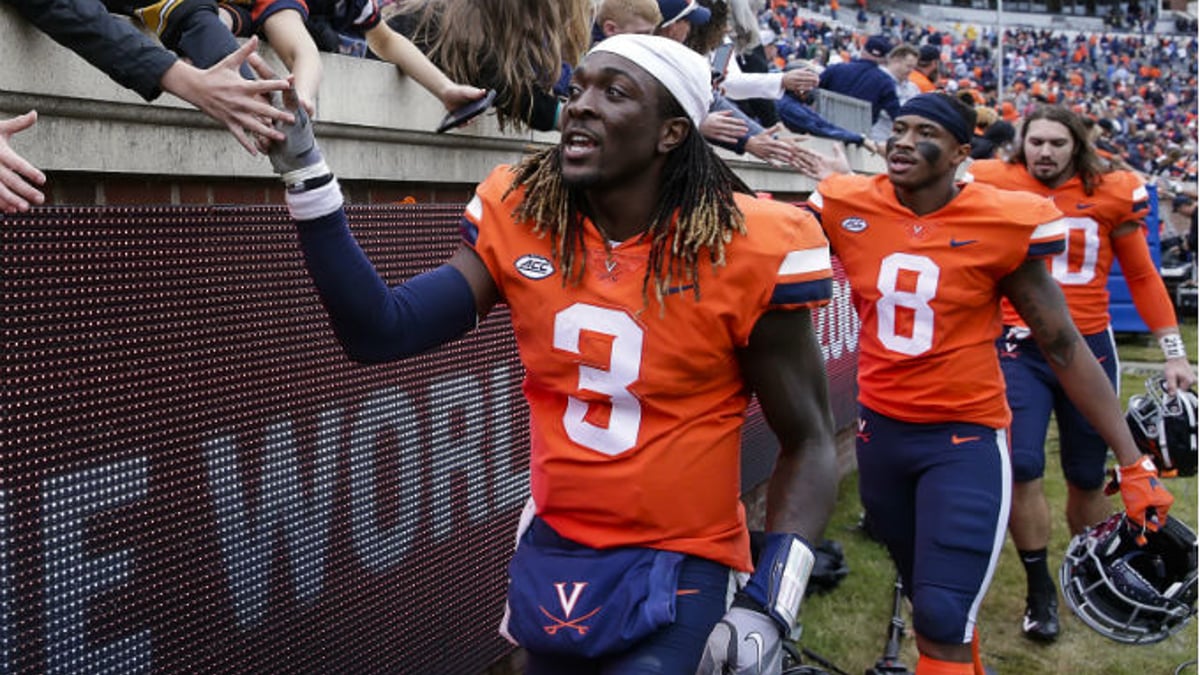Virginia Lottery Considers Sports Betting Expansion

Virginia’s most lucrative gaming entity might help propel a major shift in the state’s long-standing opposition to gambling.
The Virginia Lottery wants to be involved in the changing gambling landscape in the Old Dominion, Virginia Mercury reports. Long the most high-profile gambling-related entity in the state, the lottery hopes to continue its role as a bevy of new gaming options being to percolate in the commonwealth.
Speaking to state senators at a finance committee last week, Director Kevin Hall said his organization’s role is still undetermined. According to Virginia Mercury, Hall said he knows the lottery wants a seat at the table as the state takes its first significant steps toward gambling expansion since it introduced the lottery more than three decades ago.
“We are closely watching the conversation as it unfolds. I have a fiduciary responsibility at the Virginia Lottery to protect the brand we have created over 30 years. I am cognizant of potential competition for the same discretionary entertainment dollar.”
The lottery sells more than $2 billion worth of tickets annually, of which more than $600 million goes to state public schools each year. Other states, including West Virginia, operate and regulate their sports betting infrastructures through the lottery commission.
Far and away the largest gaming entity in Virginia, the lottery may soon have new rivals for gambling dollars.
Virginia Gambling Emerges
By publicly campaigning for further involvement with the state’s burgeoning gambling industry, the Virginia Lottery underscores the momentum for gaming expansion. It’s particularly striking coming from one of the states historically most opposed to any form of gaming.
As of 2018, Virginia is one of the few remaining states without a casino, and it’s lone remaining horse track shuttered several years ago. But by this time next year, the status of both facilities could change – and so could a major new gambling component that seemed unthinkable only years ago.
Buoyed in part by shifting attitudes nationwide, the Republican-controlled General Assembly certified poker as a game of skill and not luck during the 2017 session, a major development for a body long skeptical of any gambling expansion. In the 2017 election later that year, a new influx of more gambling-friendly Democrats in the House of Delegates along with new governor Ralph Northam further advanced gambling legislation.
Lawmakers approved one of the nation’s first historic horse racing legalization bill, allowing licensed operators to take wagers on terminals that show already-conducted races. This is expected to help restart Colonial Downs in the southeast corner of the state, which is also preparing to offer live horse racing for the first time in several years.
The state is also increasingly supportive of a commercial casino in Bristol, located along the Tennessee border in the far southwestern corner of the state. Already supported by community leaders in the region as a way to jumpstart the area’s slumping economy, backers believe the casino will be approved by the General Assembly in the 2019 session.
Meanwhile, a Native American casino may beat the Bristol facility for the first casino bet in Virginia.
After years appealing to the U.S. government, the Pamunkey Tribe gained federal recognition in 2016, allowing them rights to open a casino on tribal land. Assuming lawmakers prove as amenable to the proposed Pamunkey casino as it has the Bristol property, the new gaming center could open near Colonial Downs in the coming years.
The track and two possible casinos join the lottery as candidates to provide another major new form of gambling.
State lawmakers plan to introduce a sports betting legalization bill ahead of the 2019 legislative session. Passing such a major bill is difficult in even the most conducive environments, and key issues like taxation and regulation still need to be negotiated, but the bill’s introduction is a major milestone toward another significant expansion of Virginia gambling.
These measures are groundbreaking for Virginia. They’ve become commonplace north of the Mason-Dixon line.
Neighbors Push Virginia Forward
Virginia’s new-found support for gambling can in large part be attributed toward the attitudes of its northern neighbors.
Delaware and New Jersey were the second and third states, respectively, to take legal sports bets, after Nevada. With those states as the epicenter of sports betting on the east coast, Maryland, New York and Connecticut all took up sport betting bills of their own. Pennsylvania and Rhode Island are expected to take their inaugural wagers sometime in the coming months.
Meanwhile, West Virginia is already taking bets. The Hollywood Casino in Charles Town, West Virginia took the Mountain State’s first legal bet last month. Located just across the Virginia border in the western panhandle, the casino is an easy drive for much of Northern Virginia.
Washington D.C. is also poised to take sports bets, possibly as soon as March of next year. And even Kentucky, which like Virginia is without a single casino, is pushing ahead with a sports betting bill that could see legal wagers placed in the Bluegrass state sometime in 2019.
With all this movement in the Mid-Atlantic, and the northeast as a whole, it’s no surprise Virginia’s long-stand gambling opposition has thawed. It remains to be seen when, or if, the Old Dominion will take its first sports bet, but actions by elected officials along with growing support from the public make it seem a gambling revolution is well on its ways in Virginia.









